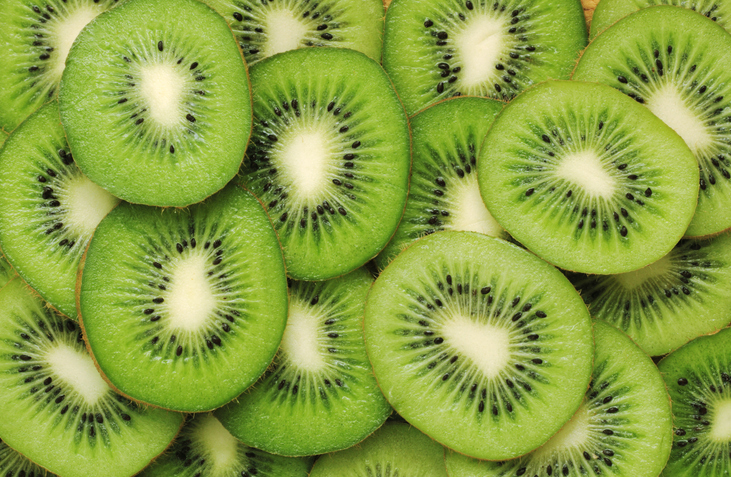Occasional constipation is nothing to worry about. But what if it’s an ongoing problem?
As many as 1 in 5 Americans deal with chronic constipation, meaning they have difficult or incomplete bowel movements, and “go” infrequently.
Frequency is a matter of some debate — some experts define normal bowel movements as occurring as many as three times per day, while others say once every three days is fine.
I know people with stubbornly chronic constipation who have tried everything to get things moving: lots of water and fiber, laxatives, potassium, even herbs and acupuncture.
But a lot of what we consider “go-to” treatments for constipation are lacking in the scientific research department.
That’s why I’m so excited to share new insights from researchers who took on the task of digging into what works and what might not — and found, among other things, that a popular fuzzy fruit could provide some much-needed relief…
New guidelines feature kiwi
Researchers from King’s College London has produced new guidelines for chronic constipation based on numerous rigorous systematic reviews, meta-analyses and stringent assessment of the quality of the evidence of existing reseach.
After digging through all of it, what did they find? That there are many more options for getting things moving than the standard advice to “just have more fiber in your diet.”
One of the most surprising dietary recommendations involved the humble kiwi.
Dr Eirini Dimidi, lead study author and reader in nutritional sciences at King’s College London, recommends eating two or three kiwis throughout the day, for at least 4 weeks, to improve constipation.
Kiwis can be eaten with or without the skin, but either way, Dr. Dimidi says, not only provides fiber, but also affects the gut in a way that increases stool volume, inducing contractions in the bowels for easier elimination.
The researchers also say snacking on 8-10 prunes or several slices of rye bread a day can have a similar effect, but may not be so easy for everyone.
Plus, “kiwi also increases water content into the gut which may soften stools,” Dr. Dimidi adds.
Speaking of water, the researchers also suggest mineral water can be a big help. Mineral water is a good source of magnesium in a bioavailable form the body can easily absorb.
Magnesium has a laxative effect, just one of the benefits magnesium oxide supplements were found to have during the meta-analyses. Other benefits included reduced abdominal pain and bloating — and less straining to have a bowel movement, which can be dangerous.
What about the more fiber mantra?
The new guidelines have been endorsed by the British Dietetic Association (BDA) and aim to transform the way this common condition is managed by doctors, nurses and dietitians in clinical practice.
“Chronic constipation can have a huge impact on someone’s day-to-day life,” says Dr. Dimidi.
“For the first time, we’ve provided direction on what dietary approaches could genuinely help, and which diet advice lacks evidence. Being able to improve this condition through dietary changes would allow people to self-manage their symptoms more and, hopefully, improve their quality of life.”
But what about fiber?
“Eating a high fiber diet offers many benefits to overall health and has been a go-to recommendation for constipation. However, our guidelines found that there simply isn’t enough evidence to suggest it actually works in constipation specifically.
“Instead, our research reveals some new dietary strategies that could indeed help patients. At the same time, we urgently need more high-quality trials to strengthen the evidence on what works and what doesn’t.”
For example, senna supplements (a type of laxative) were found to lack enough research regarding the effectiveness of the traditional herbal treatment, though its reputation goes back to the 9th century.
So, should you stop eating tons of fiber if you’re constipated? Not necessarily.
There is evidence that certain types of fiber, such as inulin, can feed the healthy bacteria in your gut that help keep things moving smoothly. Though kiwis do not contain inulin, they are considered a prebiotic food that promotes healthy bacteria in a way similar to inulin.
Sources:
Kiwis could help manage chronic constipation — EurekAlert!
Eat kiwi fruit to relieve constipation, says guidance — BBC
Got Chronic Constipation? Try Kiwi, Rye, Magnesium Supplements, Guidelines Say — MedPage Today
Chronic Constipation in the United States: Results From a Population-Based Survey Assessing Healthcare Seeking and Use of Pharmacotherapy — The American Journal of Gastroenterology
British Dietetic Association Guidelines for the Dietary Management of Chronic Constipation in Adults — Journal of Human Nutrition and Dietetics
Read full article here




